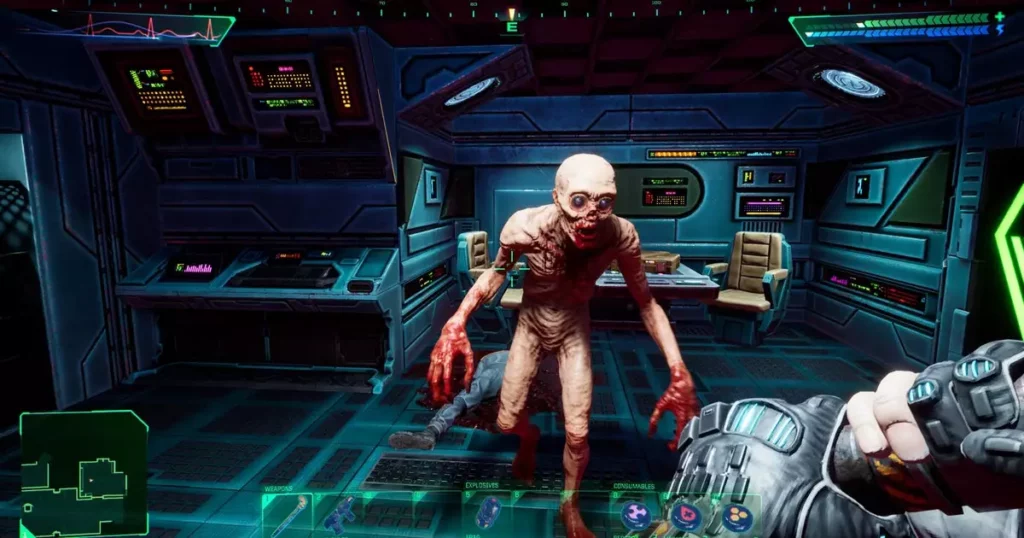The video game landscape is often likened to a vast and intricate tapestry of narratives, mechanics, and immersive experiences. Among these, few franchises have managed to weave themselves into the fabric of gaming history as profoundly as System Shock. Debuting in 1994, this franchise captured the imagination of gamers and set a benchmark for immersive simulation experiences. However, one cannot help but query: has the passage of time diluted the franchise’s impact, or can it emerge revitalized?
The unfortunate reality is that while System Shock pioneered gaming elements that are now commonplace, it now languishes in the uncertainty of development hell. Its sequel, System Shock 3, is emblematic of the difficulties faced by independent developers attempting to recapture past glories while innovating within the constraints of modern design and financial realities. With ownership struggles between Otherside Entertainment and major corporations like Tencent, the road to creating a noteworthy sequel appears riddled with potholes. The question remains: can smaller studios thrive in a landscape dominated by behemoths?
Nightdive Studios: The New Vanguards?
Enter Nightdive Studios, a name that offers both nostalgia and hope to a beleaguered community of fans. Known for their successful remake of the original System Shock, they have now become torchbearers for an iconic franchise that many believed had slipped into obscurity. During the recent Game Developers Conference (GDC), Larry Kuperman of Nightdive hinted at potential updates for System Shock 3, yet his remarks did little to assuage concerns. While tantalizing hints of clarity are on the horizon, the complexities of the development situation highlight an alarming trend: the disconnect between expectations and the technological realities of game production.
Acknowledging the convoluted status of System Shock 3, Kuperman’s comments reflect a central issue plaguing many smaller studios: the misalignment of creativity and corporate interests. Though they are invested in exploring the franchise’s rich history, this commendable focus comes at a cost. The tension between innovation and adherence to the past leaves fans perpetually on edge, raising the stakes for the eventual outcome.
While the buzz around a potential remaster of System Shock 2 holds promise, it leads to questions about whether the franchise will merely recycle old content or craft a new narrative arc that resonates with both loyal followers and newcomers. The market is teeming with remakes; how will Nightdive ensure that they remain relevant and groundbreaking?
The Gamers’ Unfulfilled Expectations
Leveraging nostalgia can be a double-edged sword. On one hand, it has the potential to usher in massive sales, but on the other, relying solely on the past risks alienating fans who crave novel experiences. This becomes even more pressing considering the resurgence of immersive simulations in recent years. Games like Dishonored and Prey have reignited the genre’s appeal, reminding many of its potential for deep environmental storytelling and player agency. The industry is hungry for new experiences; can Nightdive serve up something still fresh from the well of System Shock?
Kuperman has cautiously teased innovations beyond mere remasters, hinting at new content and expansions that could enrich the franchise’s narrative and gameplay. This prospect underscores a yearning for originality amidst a sea of imitative gaming experiences. However, as excitement builds, the expectation escalates. Gamers want more than a polished surface; they demand depth, involvement, and a true evolution of the franchise they adore.
The Stakes of Innovation vs. Nostalgia
The dilemma that faces Nightdive and other developers in the booth of opportunity is akin to walking a tightrope. They must navigate the dual pressures of honoring the franchise’s legacy while also pushing boundaries into unknown territories. As Otherside dives into a new immersive sim with Thick As Thieves, the competition intensifies, and the stakes magnify. The outcome of this duel may redefine the community’s allegiance and set a precedent for future developments.
As System Shock stands at this crossroads, the ultimate task is clear: to forge a compelling narrative that captivates the modern gamer while staying true to its innovative roots. The franchises that manage to capture this balance will not only survive but thrive in this unrelenting marketplace. The community watches, waits, and hopes—wondering what horrors, or perhaps wonders, may await them in Citadel Station once again.









Leave a Reply